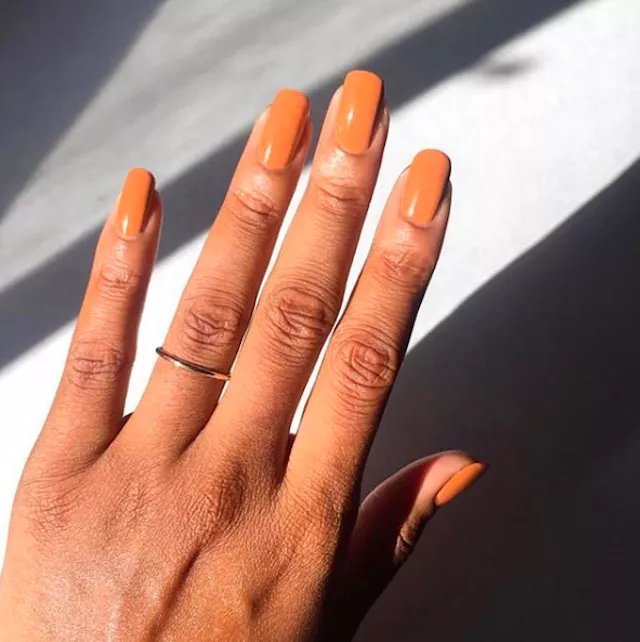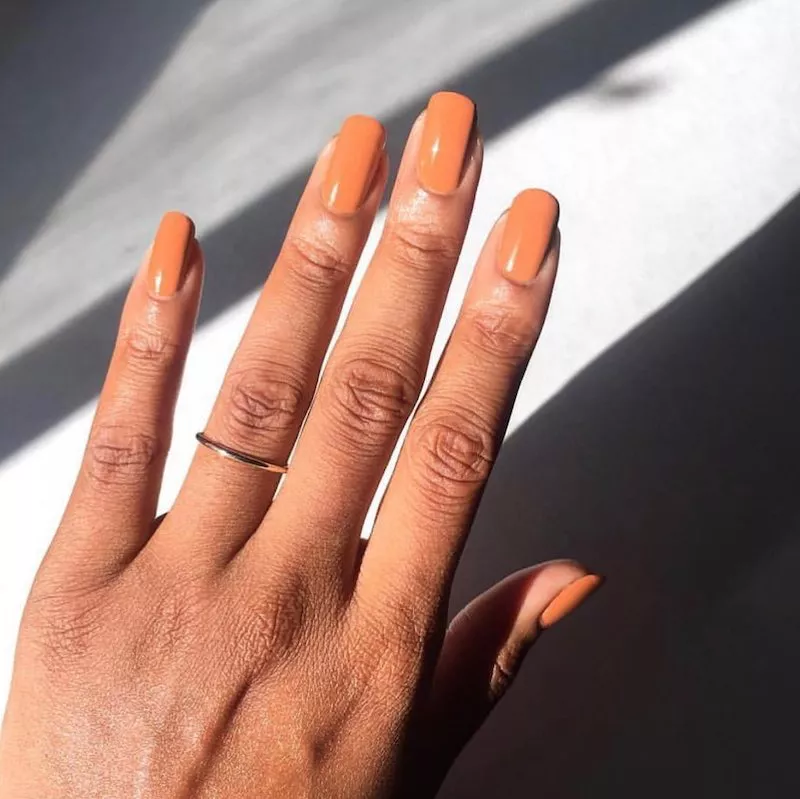
@womnails
When Symantha Wechie-Onyechi was growing up, she was fascinated by the long, polished nails her mother and aunts always had. The first-generation Nigerian American adopted their love of nail care at an early age and has kept her hands meticulously manicured and embellished with designs ever since.
But over the years, some of her trips to her local nail salon left her more disappointed than satisfied. Though nail shops have countless polish options on display, Wechie-Onyechi found that not many complemented her brown skin. After several unsuccessful attempts to find a nude polish with the proper undertones, Wechie-Onyechi realized that the nail care industry was lacking lacquers made with women of color in mind. So in 2016, Wechie-Onyechi launched OOO Polish.
When she began mapping out her vision for OOO Polish four years ago, amplifying representation, creating non-toxic products, and having Photoshop-free branding were three key pillars she wanted her brand to be built on. Recently, I talked to Wechie-Onyechi about how she’s meeting these goals and making her mark on the nail industry.Keep scrolling to read what Wechie-Onyechi had to say.
On creating non-toxic nail polish...
Women of color consume more toxic beauty products than any other group, according to a 2017 study conducted by the American Journal of Obstetrics and Gynecology. Wechie-Onyechi took this unsettling disparity into account when creating OOO Polish. She began formulating her polishes with healthier, cruelty-free ingredients, mixing and pouring the polishes in her home.
“Our nail polish and gel polish are 10-free and 13-free,” says Wechie-Onyechi. This means that they do not contain chemicals known to negatively affect human health, such as formaldehyde, toluene, and dibutyl phthalate. “We have also been certified with Leaping Bunny, and our suppliers are toxic-free,” adds Wechie-Onyechi.
The brand also prioritizes transparency and provides a list of all ingredients in their products, so you know exactly what you’re putting on your nails.
On how she selects the names for her polishes…

@ooopolish
When coming up with each polish name and collection, Wechie-Onyechi taps her African roots for inspiration. “It almost came to me immediately when I created my first nude caramel shade, Orunmila, that I would be naming the nail color collections based on not only pre-colonial Africa but also our spirituality,” she says.
Through her company, she hopes to inform people about the African religions and empires that are not often included in history curriculums. “Our goal is to provide nail polish names with purpose. We believe education helps fuel unity,” says Wechie-Onyechi.
OOO Polish’s collections include names such as the Bamana Empire, which was one of the most successful kingdoms in West Africa. Another set gives nod to the Nok people; a group deemed one of the most advanced ancient sub-Saharan civilizations in African history. The brand’s most recent debut, the Mande Collection, pays homage to the ethnic groups in West Africa. In line with spring, the collection boasts vibrant pink, lavender, and blue shades.
On not retouching images of her polish…

@ooopolish
While many of the photos we see plastered in magazines or on social media get retouched, you won’t find an altered image on OOO Polish’s Instagram or website. For Wechie-Onyechi, this was an intentional choice. “We love the effects that editing and Photoshop can bring to products, but many times, they dont match what you end up getting physically,” says the founder.
By using natural, everyday imagery, she hopes to help women explore beauty that is more realistic and relatable. “That’s why we include hands that feel relatable. We use hands with skin conditions, short nails that have been hand-painted, or hairy knuckles because thats what hands look like in real life," she says.
On why nail care is so important to women of color…

@ooopolish
For the women in Wechie-Onyechi’s family, taking care of their nails was an integral part of their self-care routine. The same holds for so many other women of color. Why is this? “I believe it’s because taking care of "us" is a cultural thing,” says Wechie-Onyechi.
“Before, during, and after slavery, we have always cared about our appearance. From tribal facial markings to piercings to [nails], weve always decorated ourselves and did it with dignity and flyness,” she says.